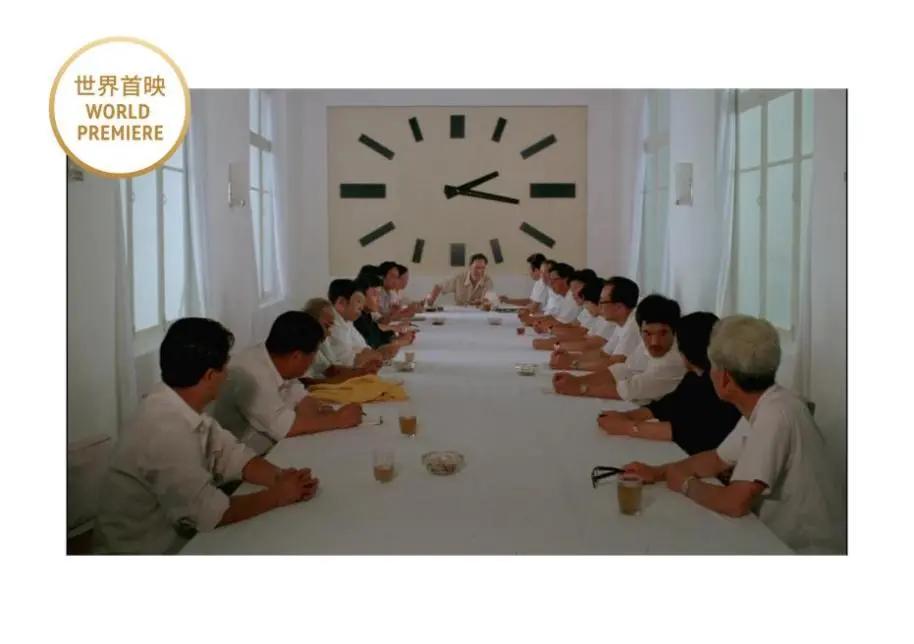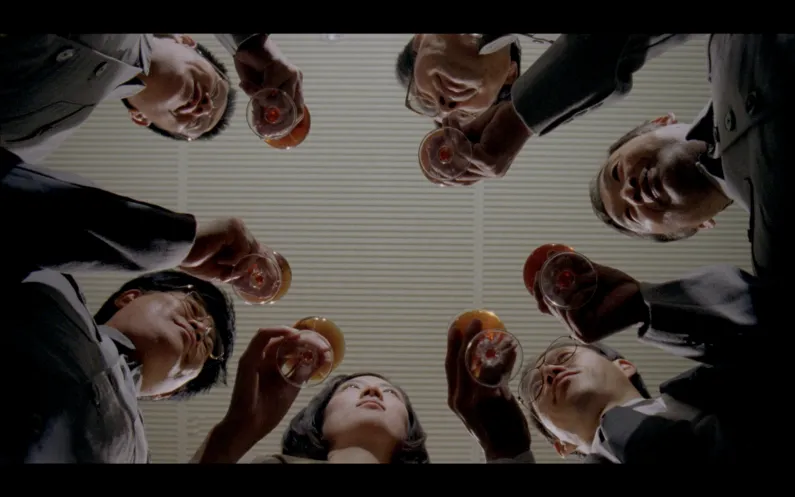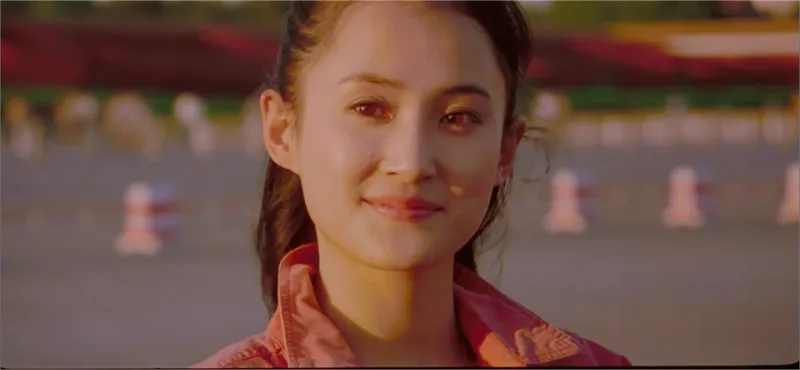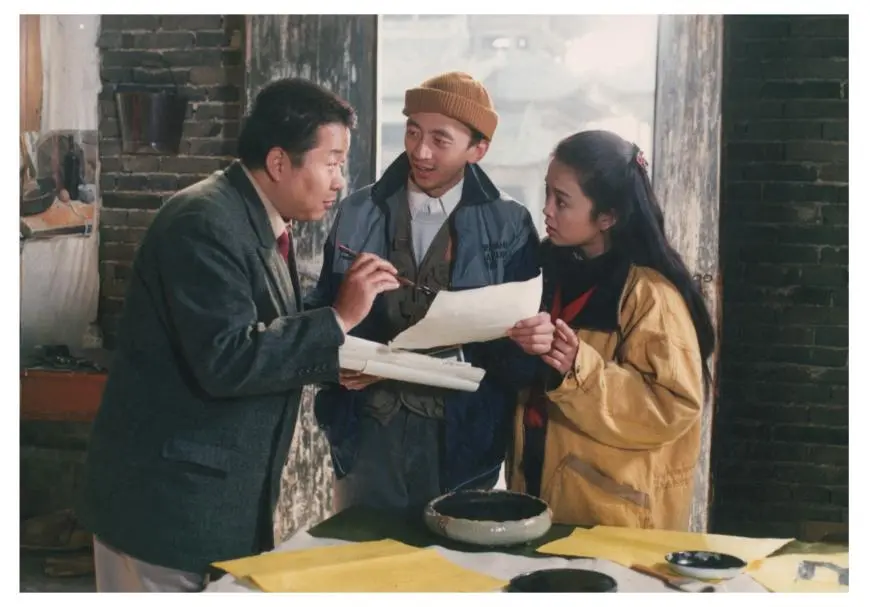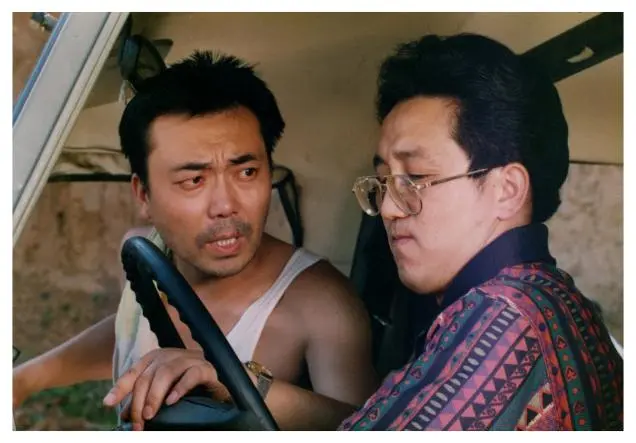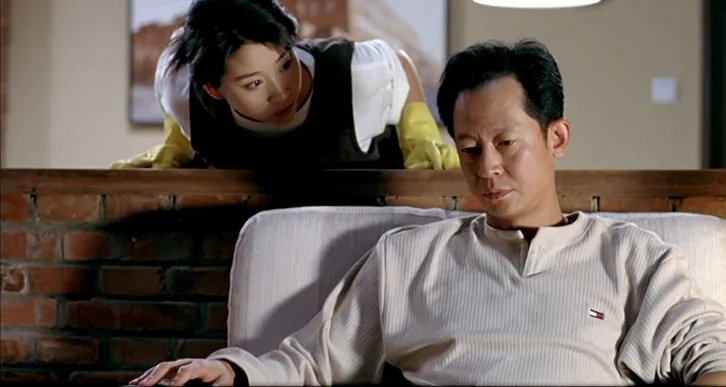At the Retrospective section of the Beijing Film Panorama during the 14th Beijing International Film Festival (BJIFF), audiences will be treated to seven iconic works by the prominent Chinese director Huang Jianxin, which include The Black Cannon Incident (4K) (1986), Dislocation (1986), Samsara (1988), Stand Straight, Don't Bend Over (1993), Back to Back, Face to Face (1994), Signal Left, Turn Right (1996), and Gimme Kudos (2005).
Huang Jianxin
Huang Jianxin, born in 1954, is one of China's Fifth Generation film directors. After completing his continuing education in the Department of Directing, Beijing Film Academy in 1983, he produced works such as The Black Cannon Incident, Dislocation, and Samsara, creating a sensation in the film world. These films stand out as notable exemplars of the artistic exploration of Chinese cinema in the 1980s, showcasing Huang's exceptional artistic creativity and imagination, and conveying profound philosophical reflections and humanistic concerns.
In the 1990s, Huang embarked on the production of several films that shed light on the diverse facets of urban life, including Stand Straight, Don't Bend Over, and Back to Back, Face to Face. He shifted his focus back to the secular world and urban life, portraying the daily life and interpersonal relationships of the Chinese people from multiple perspectives. Huang summarized his creative approach during this period as follows, "Life shapes my films."
Since the beginning of the 21st century, Huang Jianxin has remained committed to his creative pursuits, delivering excellent pieces like Gimme Kudos and The Founding of a Republic. Additionally, he has engaged in extensive executive production efforts, nurturing the next generation of filmmakers and propelling the development of China's film industry.
The film career of Huang Jianxin largely mirrors the evolution of Chinese cinema since the 1980s, illustrating the continuous innovation, focus on everyday life, and the spirit of staying attuned to the era prevalent among Chinese filmmakers. The Huang Jianxin Retrospective centers on his early works, providing a deeper understanding and insight into Huang's film creations through these seven films.
The Black Cannon Incident (4K) 1986
Highlight
A bold formal experimentation in Chinese cinema during the 1980s, featuring an absurdly satirical allegory
The film The Black Cannon Incident narrates a succession of chain events set off by a missing chess piece. In The Black Cannon Incident, "space" plays an exceedingly vital role, as Huang Jianxin undertakes avant-garde artistic explorations in spatial design and art decoration, emphasizing the narrative function of space and employing an absurd and satirical technique to portray the psychology and condition of different characters. The leading actor Liu Zifeng in this film won the Best Actor at the 6th Golden Rooster Awards.
Dislocation 1986
Highlight
A Chinese sci-fi film masterpiece that delves into the relationship between humans and robots
Dislocation, also starring Liu Zifeng, continues the formal experimentation and absurdity of The Black Cannon Incident. The film tells the story of a director of public security and the robot he created, with the impressive opening dream sequence characterized by distinct expressionist features. It not only excels in its formal aspects but also reflects and satirizes the "dislocation" between idealism and reality at a textual level, providing a thought-provoking reflection.
Samsara 1988
Highlight
A film adapted from the work of Wang Shuo that delves deep into the mindset and destiny of young people in the new era
Adapted from Wang Shuo's novel Emerging from the Sea, the film depicts the life tragedy of the young man Shi Ba. Keeping true to Wang Shuo's style, the film portrays the cynical and existentially confused mindset of the younger generation, maintaining the core essence of his storytelling. For this film, Huang Jianxin continued to venture into innovative territory in the cinematic form, utilizing a variety of visual symbols to reflect the changes in characters' lives and mental states, giving this film a unique flair among the four adaptations of Wang Shuo's works in 1988.
Stand Straight, Don't Bend Over 1993
Highlight
Huang Jianxin's foray into a new style, with a nuanced observation of Chinese society
In Stand Straight, Don't Bend Over, Huang Jianxin reveals his insightful observation and reflection on society since the advent of China's reform and opening-up. Centering on three families of varying backgrounds, the film uses the dynamics of neighborhood relationships to portray the evolving landscape of Chinese society. Starting from this work, Huang Jianxin deliberately restrains the stylized characteristics of his works created in the 1980s, focusing instead on reflecting the daily lives and relationships of ordinary urban people, and presenting characters from a calm and objective perspective while infusing wit and humor. Starring Da Shichang and Feng Gong among others, this film enabled Feng Gong to win the Best Supporting Actor at the 16th People’s Hundred Flowers Awards.
Back to Back, Face to Face 1994
Highlight
A film honored with the Golden Rooster Award for Best Director that provides a razor-sharp confrontation with social realities
Part of Huang Jianxin's "Urban Trilogy", this film is an adaptation of Liu Xinglong's novel Qiufengzuile. The narrative focuses on the deputy director of a cultural center's aspiration for a promotion. The film Back to Back, Face to Face offers a portrayal and analysis of the dilemmas faced by individuals in the urban landscape, while satirizing the numerous "peculiar phenomena" in the society of that era. Co-directed by Huang Jianxin and Yang Yazhou, it led both directors to jointly win the Best Director at the 15th Golden Rooster Awards.
Signal Left, Turn Right 1996
Highlight
A story of training at a driving school that mirrors the diverse facets of human life, which offers a profound insight into social interpersonal incidents
A journalist, a laid-off female worker, self-employed individuals, and a wealthy individual of different identities are classmates at a driving school, where their diverse lives and stories converge in such a space. As one installment of Huang Jianxin's "Urban Trilogy", this film humorously examines people's different attitudes and experiences of the time through the lens of the 1990s novelty of "learning to drive". Starring Niu Zhenhua, Ding Jiali, and Ju Hao among others, this film was once nominated for the Tokyo Grand Prix in Competition at the Tokyo International Film Festival.
Gimme Kudos 2005
Highlight
Sincerity or deceit? An examination and interrogation of morality and truth
Adapted from Bei Bei's novel Praise Me, this film captivated Huang Jianxin due to its exploration of issues surrounding "personality and belief", as stated by the director himself. Building upon Huang's tradition of absurdity, it intricately examines the ethical and moral dilemmas within contemporary society through the story of small potatoes seeking praise. Featuring seasoned actors such as Wang Zhiwen, Fan Wei, and Chen Hao, among others, the film was honored with the Jury Grand Prix and Best Screenplay at the 8th Shanghai International Film Festival in 2005.
From the early avant-garde experiments to the portrayal of urban diversity, Huang Jianxin's films have always aimed to capture the essence of everyday life. Approaching his 70th birthday, he continues to be one of the most dynamic and influential figures in the Chinese film industry. During the 14th BJIFF, the director himself will attend the opening ceremony of the "Retrospective - Huang Jianxin" at the Lao She Theater. Stay tuned for this exciting event.
Comments from Movie Fans
Please download the Beijing International Film Festival APP for more interesting content



